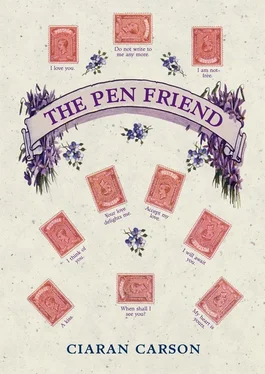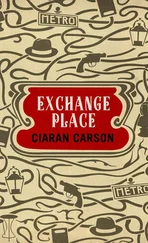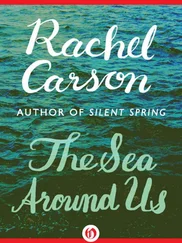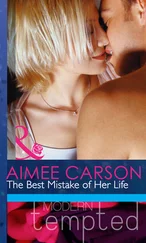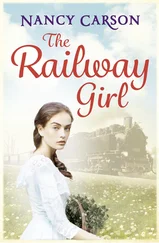The Paul Henry, much the same kind of thing, but the Middleton, it’s a bit more challenging, and I go on about the cultural traffic between Belfast and Paris, I throw in a mention of Sir John Lavery, and they like that. Isn’t that the Lavery that painted the Royal Family? says Bentley. Yes, says Callaghan, and those rather dashing paintings of the Orange parades, great colour sense, don’t you think, those vibrant oranges and purples. Then I talk about the furniture a little. Drinks cabinet by Anderson & McAuley, when they were the big department store in Belfast, top of the range piece, made for linen merchants, shipbuilders. Same kind of design that went into the Titanic . Ditto the suite and the rugs, and I gabble on a bit more about the décor, you said, and I can see Callaghan and Bentley exchanging approving glances, so I see I’m on the right track, and I end up making a great speech about how communities can only be reconciled by pursuing common interests, that living with beautiful things must necessarily work against narrow sectarian interests, you know, kind of William Morris philosophy, and that MO2 is the kind of organisation that seeks harmoniously to integrate its objectives with the aspirations of the majority of the citizens of Ireland both North and South, it’s all a bit of tautology really, or codology, but it seems to go down well with Callaghan and Bentley. So they say, Well, Miranda, consider yourself differentiated, and I say, Is that it? and they smile and nod. And the budget I gave them in advance, it’s approved in a matter of days, and I begin setting myself up. And here I am, Fawcett & Jones, at your service, Angel.
I didn’t know you knew so much about Irish art, Nina, I said. You gave me one of your looks. That’s because I usually listen to you talk about it, Angel, you said, you do it very well. And anyway, when I started off, I didn’t know that much, but then I made it my business to know. That’s the challenge of the job, there’s always something new to learn, you said, and I didn’t know whether you spoke tongue in cheek, or not.
As I write, Nina, it is Thursday 28th July 2005, precisely three weeks after the bombing of London by radical Islamic terrorists, and the IRA has just made a statement calling upon all its units to ‘dump arms’ by four o’clock this afternoon, and instructing its volunteers to assist the development of purely political and democratic programmes through exclusively peaceful means. In other words, the IRA has said that its war is over, without using those precise words. And I wonder if the helicopter last night had anything to do with that announcement. For helicopters are about being seen and heard, as much as they are about seeing and hearing. They’re a signal that something’s happening, or about to happen. Part of the choreography, an audio-visual aid, if you like. The IRA statement was delivered on a DVD in a quiet Belfast accent by a former IRA prisoner, Seanna Walsh, a name which was pronounced variously by the political commentators, and to tell you the truth, I was not familiar with this supposedly Irish name myself. But that a real person should be assigned such a role was in itself significant, for previously all IRA statements had been issued by the pseudonymous P. O’Neill. Walsh was standing against a backdrop of green ivy in what I took to be his back garden, and I could hear a child crying and a blackbird singing behind him as he spoke the momentous words. So it seemed appropriate for me to write this letter with a Blackbird Self-Filling Pen, made by Mabie Todd & Co. Ltd of London in 1938, who also made Swan, Jackdaw and Swallow pens. It’s a green Blackbird, done in various hues of marbled green, with black inclusions, the logo of a stylised blackbird in flight stamped on the body and the head of the clip. The gold nib glitters as I write. Any time I have a Blackbird in my hand I cannot help but think of the Early Irish poem my father taught me. You remember, Nina? I used to recite it to you:
int én becro léc feitdo rinn guipglanbuidi
fo-ceird faídós Loch Laíg,lon do chraíbcharnbuidi.
It was, I explained, a piece of marginalia, inscribed by a monk in the margin of his ecclesiastical text as he was distracted by the beauty of the moment. Or a piece of graffiti, you said, someone who wanted to say, I was here. Perhaps, I said, except that the someone is anonymous. And yet maybe we feel that we do know him, for all that he’s nameless. It sounds beautiful, you said, what does it mean? Oh, it’s untranslatable, of course, I said, and I’ve tried it different ways, all with their own failings. But it might go something like this:
the little birdthat whistled shrillfrom the nib ofits yellow bill:
a note let goo’er Belfast Lough — a blackbird froma yellow whin.
Whin , you said, we have that word in Yorkshire too. The whinny moors of Yorkshire. Somehow it’s not the same as gorse , is it? No, I said, we speak a different language to the Southern English. And I went on to say that this was the first piece of writing — apart from practice runs — that I’d ever done on a typewriter. I wanted to see how it might look spaced out in regular type, for all that it had originally been done with a goose-quill and oak-gall ink.
I’d bought the typewriter, an Imperial Portable, in Woolworth’s in 1972, Saturday 4th March, to be precise. For some time it had been a custom for three or four of us to meet for coffee on Saturday afternoons in the Abercorn Restaurant, just across the street from Woolworth’s. Paul Nolan would be there, we’d gone on Civil Rights marches together in the late sixties — 1968, the year of revolution, we saw ourselves as Belfast equivalents of the Paris students. And in 1968 we thought the thing would be over in a matter of months, things would change for the better, and everyone could get on with living their lives in a just society. Little did we know. Four years later we’d meet in the Abercorn and talk literature and art and politics, wondering where it was all going to end. It wasn’t a regular date, but most Saturdays there’d be a casual gathering. Anyway, on this Saturday, as it happened, I was so engrossed by my Imperial Portable, excited by the prospect of trying it out, that I gave the Abercorn a miss. And so, for one reason or another, did my friends. Most Saturdays we’d be there; this particular Saturday we were not. At about four o’clock I was just about to board the bus home, the blackbird poem was in my mind, and I was visualising myself pecking out the words on the unfamiliar keyboard, when I heard an almighty explosion. The IRA never claimed responsibility for the Abercorn bomb that killed two young women — they happened to be Catholics — and injured more than seventy; but it was widely accepted that it was indeed the IRA, and it was one of the atrocities cited today as commentators cast their minds back over the years of the Northern Ireland conflict.
So the typewriter saved you, you said. The Imperial Portable. Who knows? I said. Maybe my father and mother saved me, when they taught me Irish. Maybe the Irish monk who wrote the poem saved me. Maybe the blackbird saved me, as it sang in a whin bush eleven hundred years ago. Maybe the worm it had just fed on saved me. When something terrible happens, everyone has their story about how they were saved — they’d forgotten their passport, and had to turn back for it, and so missed the plane that crashed a matter of hours later, how their bicycle had a puncture, if that splinter of glass had not been lying on the road at that precise spot, had the drunk not smashed his empty bottle on the pavement the night before, had the landlord not served him that last bottle to take out, why, they’d have been cycling past the scene of the explosion at about that time, they’d very likely be blown to bits, how they had a premonition, and decided to take the bus instead of the tube, how in hindsight they now knew what that dream they’d had two weeks ago meant, how in a vision they’d seen blood run down the glass of an aeroplane window, how they’d got drunk last night and called in sick that day, this or that random or purposeful interference with the normal pattern of their lives, tiny blips that become meaningful under the pressure of the extraordinary event, and so a series of coincidences, or what now seem to be coincidences, is made into a narrative that makes some sense of what is beyond normal sense. But the stories only skim the surface. Who can say what circumstantial chain lies behind our actions, and our thoughts? Yes, you said, I often think of that, when I think of how my mother died. Because in many ways it seemed so unnecessary, so gratuitous. But then it is always difficult for us to imagine why someone should take their own life, you said.
Читать дальше
